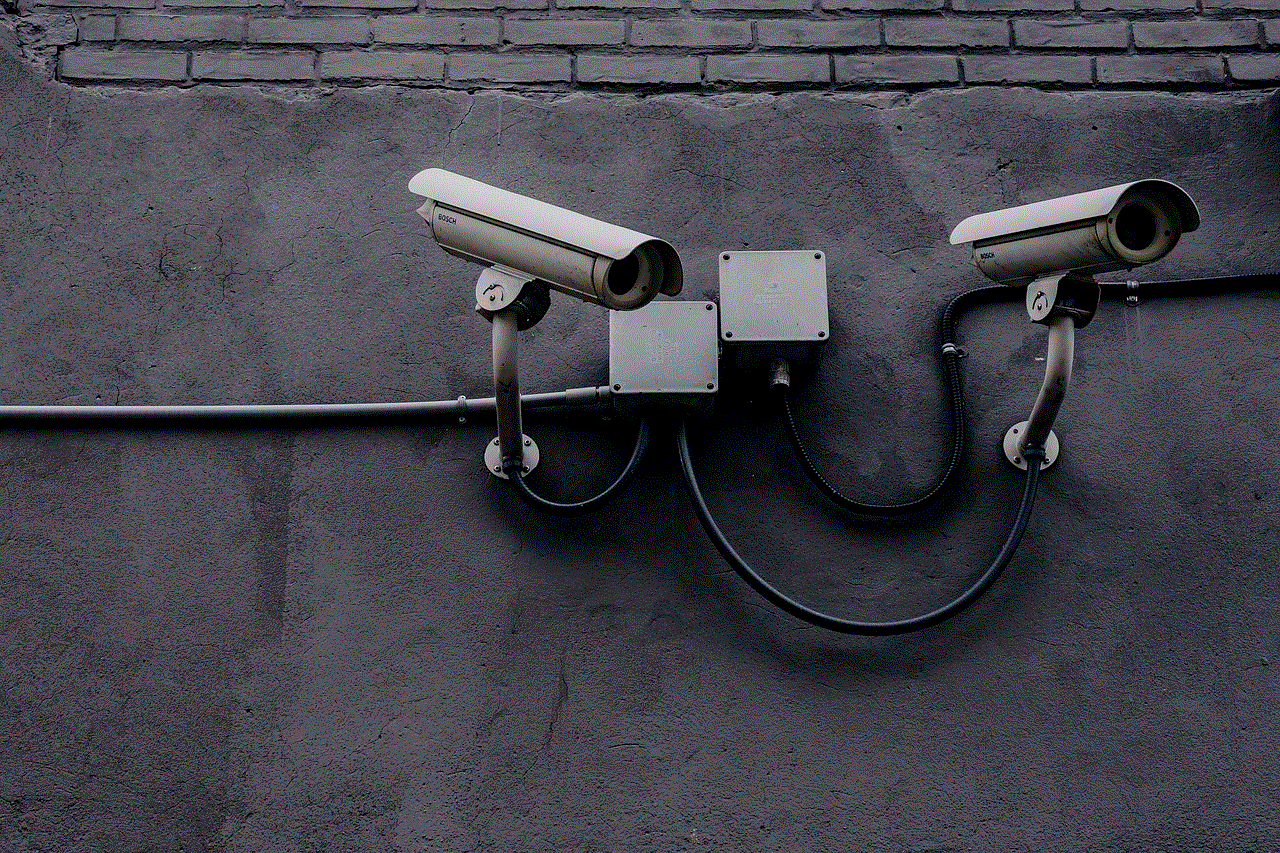walmart free tv giveaway
Walmart is one of the largest retail companies in the world, offering a wide range of products at affordable prices. From groceries to electronics, Walmart has become a one-stop shop for many consumers. In recent years, the retail giant has also been known to offer various promotions and giveaways to attract more customers. One of their most talked-about giveaways is the free TV giveaway, where lucky customers have the chance to win a free television.
The concept of a free TV giveaway may seem too good to be true, especially for a company as big as Walmart. However, this marketing strategy has proven to be successful for the retail giant. In this article, we will take a closer look at the Walmart free TV giveaway and how it has impacted the company’s sales and customer loyalty.
Firstly, let’s understand what the Walmart free TV giveaway is all about. Every year, during the holiday season, Walmart runs a promotion where customers who make a purchase of a certain amount are entered into a draw to win a free TV. The higher the purchase amount, the more entries the customer gets. This promotion is only valid for a limited time, usually a few weeks, which creates a sense of urgency and encourages customers to make their purchases at Walmart instead of other retailers.
The free TV giveaway has become a highly anticipated event for many Walmart customers. It has become a tradition for some families to make their holiday purchases at Walmart, hoping to be one of the lucky winners. This not only increases foot traffic in Walmart stores but also boosts their sales during the holiday season.
But why would a company like Walmart give away expensive items like TVs for free? The answer lies in the psychology of consumer behavior. Customers are more likely to make a purchase if they feel like they are getting a good deal or a bargain. The free TV giveaway creates a sense of excitement and perceived value for customers, making them more inclined to make their purchases at Walmart.
Moreover, the free TV giveaway also helps Walmart to stand out among its competitors. During the holiday season, many retailers offer promotions and discounts to attract customers. However, the free TV giveaway sets Walmart apart, making it the preferred choice for customers looking to score a free television. This not only increases Walmart’s market share but also puts pressure on other retailers to come up with equally attractive promotions.
While the free TV giveaway has been a successful marketing strategy for Walmart, it has also faced some criticism. Some critics argue that the promotion only benefits those who can afford to make large purchases, leaving out lower-income families who may not have the means to do so. However, Walmart has been quick to address these concerns by also offering alternative ways to enter the giveaway, such as through social media contests or mail-in entries.
Another criticism of the free TV giveaway is that it creates a frenzy among customers, leading to overcrowding in stores and even causing chaos at times. In 2018, a Walmart store in Indiana had to be shut down temporarily due to overcrowding caused by the free TV giveaway. This raised concerns about customer safety and the need for better crowd control measures during such promotions.
Despite the criticism, the free TV giveaway has proven to be a successful marketing strategy for Walmart. It not only increases sales and customer loyalty but also creates a positive buzz around the brand. The winners of the free TV giveaway often share their experience on social media, creating free publicity for Walmart.
Moreover, the free TV giveaway also aligns with Walmart’s brand image of being a company that offers affordable products to its customers. By giving away free TVs, Walmart shows that they value their customers and are willing to go the extra mile to make their shopping experience more enjoyable.
In conclusion, the Walmart free TV giveaway has become a highly anticipated event for both customers and the company itself. It not only boosts sales and customer loyalty but also helps Walmart stand out among its competitors. However, it is important for Walmart to address any concerns regarding customer safety and ensure that the promotion is accessible to all customers. With the success of the free TV giveaway, we can expect Walmart to continue this tradition in the years to come, making the holiday season even more exciting for its customers.
what are ghosts afraid of
Title: Unveiling the Fears of Ghosts: A Dive into the Paranormal Realm
Introduction:
Ghosts have been a subject of fascination and intrigue for centuries, captivating the minds of people from all walks of life. These ethereal beings, believed to be the spirits of the deceased, are often portrayed as haunting and terrifying entities. However, have you ever wondered what frightens ghosts themselves? In this article, we shall delve into the realm of the paranormal and explore the various factors that may instill fear in these otherworldly beings.
1. The Unknown:
Perhaps the most prevalent fear among ghosts is the fear of the unknown. Just as humans fear what they do not understand, ghosts are no different. Their existence in a liminal space between the physical and spiritual worlds often leaves them in a state of confusion and uncertainty. This fear can manifest when they encounter unfamiliar entities or encounter situations that defy their comprehension.
2. Light:
Ghosts are often associated with darkness and shadowy places. Hence, it may come as a surprise that light is one element that ghosts may fear. Light symbolizes purity, a cleansing force that can dispel negative energies. Bright lights, such as sunlight or powerful artificial lighting, are believed to have the ability to banish ghosts or weaken their presence. Consequently, ghosts may avoid well-lit areas or retreat when confronted with strong illumination.
3. Holy Objects:
Throughout history, holy objects and symbols have been deemed as powerful repellents against evil entities, including ghosts. Crosses, religious texts, holy water, and sacred relics are believed to possess a spiritual energy that can ward off negative forces. Ghosts, being aware of the power of these objects, may experience fear or discomfort when confronted with them.
4. Exorcisms and Rituals:
Exorcisms and rituals designed to remove or banish ghosts are performed across various cultures and religions. These practices often involve invoking higher powers, reciting specific prayers, or performing intricate ceremonies. The strength of these rituals lies in the belief and faith of those involved. Ghosts, aware of the consequences of such rituals, may fear the potential expulsion or confinement they may face if subjected to an exorcism.
5. Disbelief and Ignorance:
Believe it or not, ghosts may also fear disbelief and ignorance. Ghosts are said to draw energy from the living, and their presence is often linked to their ability to interact with and affect the physical world. However, when humans dismiss or ignore their presence, ghosts may feel a sense of isolation and powerlessness. The fear of being forgotten or disregarded by the living can be a significant source of distress for these supernatural entities.
6. Other Ghosts and Malevolent Spirits:
Just like humans, ghosts can also be terrified of their own kind. Within the paranormal world, there are various types of spirits, ranging from benevolent to malevolent. Malevolent spirits, such as demons or angry ghosts, can pose a threat to other ghosts. These entities may possess the ability to harm or manipulate other spirits, leading to fear and avoidance among ghosts.



7. Crossed Over Loved Ones:
Contrary to popular belief, not all ghosts are malevolent or lost souls. Some spirits may be deceased loved ones who have crossed over and returned to visit their living family or friends. These benevolent ghosts often aim to provide comfort, guidance, or closure. However, ghosts may fear crossing paths with their loved ones due to the overwhelming emotions and memories they evoke. They may worry about the pain of reliving past events or the potential for their presence to cause distress to those they care about.
8. Boundaries and Confinement:
Ghosts are often portrayed as wandering souls, but they may also fear boundaries and confinement. Ghosts may fear being trapped in a specific location or being unable to move freely between the spiritual and physical realms. This fear of confinement may stem from a desire for freedom, exploration, or the fear of being stuck in a place associated with negative experiences or emotions.
9. Psychic Abilities:
Psychic abilities, such as clairvoyance or mediumship, can enable humans to communicate with ghosts. However, these abilities can also be perceived as a threat by spirits. Ghosts may fear being exposed or manipulated by individuals who possess psychic gifts. These abilities may disrupt their equilibrium or subject them to unwanted attention, leading to a sense of vulnerability and fear.
10. Moving On:
Finally, ghosts may fear the concept of moving on or transitioning to the afterlife. Just as humans may fear the uncertainty of death, ghosts may experience a sense of trepidation about leaving the familiar behind and venturing into the unknown. They may cling to their past lives, memories, or attachments, prolonging their existence in the spiritual realm.
Conclusion:
Despite their haunting reputation, ghosts are not immune to fear. The paranormal world is vast, and just as humans have their own apprehensions, it is only natural for ghosts to harbor their own fears. From the unknown to light, holy objects to malevolent spirits, this article has explored the various factors that may evoke fear in these ethereal beings. While the true nature of ghosts remains a mystery, understanding their fears offers a unique perspective into the enigmatic world of the paranormal.
when should i have a baby shower
When Should I Have a Baby Shower?
A baby shower is an exciting event for expectant parents. It is a celebration where friends and family come together to shower the parents-to-be with love, support, and gifts for the upcoming arrival of their little one. Planning a baby shower involves several considerations, and one important question that often arises is, “When should I have a baby shower?” In this article, we will explore the various factors that can help you determine the perfect timing for your baby shower.
1. Second Trimester:
The most common and recommended time to have a baby shower is during the second trimester of pregnancy. This period, which starts around 13 weeks and ends around 27 weeks, is considered the sweet spot for hosting a baby shower. By this time, most women have overcome the initial discomforts of pregnancy, such as morning sickness, and are feeling more energetic. Moreover, it is early enough to avoid the risk of premature labor or complications that may arise in the third trimester.
2. Personal Circumstances:



While the second trimester is generally the ideal time, personal circumstances may influence the timing of a baby shower. For instance, if the expectant mother has a high-risk pregnancy or a medical condition that requires close monitoring, it may be better to have the baby shower earlier, during the first trimester. On the other hand, if the mother is expecting twins or multiples, it might be more suitable to have the baby shower later in the second trimester to give her more time to prepare for the arrival of multiple babies.
3. Weather Considerations:
Another factor to consider when deciding when to have a baby shower is the weather. If you live in a region with extreme weather conditions, such as scorching summers or harsh winters, it is wise to plan the baby shower accordingly. For example, if you are due in the summer, it might be better to have the baby shower during the spring or early summer when the weather is more pleasant. Similarly, if you are due in the winter, hosting the baby shower in late fall may be a better option to avoid any weather-related inconveniences.
4. Cultural Traditions:
Cultural traditions and customs also play a significant role in determining when to have a baby shower. In some cultures, it is customary to have the baby shower after the baby is born. This is often done to ensure the health and safety of both the mother and the baby. However, in many Western countries, baby showers are typically held before the baby’s arrival. It is essential to consider your cultural background and the traditions followed within your community when planning the timing of your baby shower.
5. Family and Friends Availability:
Hosting a baby shower is all about bringing together your loved ones, so it is crucial to choose a date that works for your family and friends. Consider their availability and schedule when finalizing the date. It is best to avoid holidays, long weekends, or other significant events that might conflict with your guests’ plans. Sending out save-the-date invitations well in advance can help ensure that your loved ones can mark their calendars and make necessary arrangements to attend your baby shower.
6. Venue Availability:
If you plan to have your baby shower at a specific venue, such as a restaurant, banquet hall, or someone’s home, it is important to check the availability of the venue for your preferred date. Popular venues tend to get booked quickly, so it is advisable to make inquiries and secure the venue as soon as possible. Having a venue that accommodates your guest list comfortably is essential to ensure a successful and enjoyable baby shower.
7. Pregnancy Milestones:
Certain pregnancy milestones can also influence the timing of your baby shower. For example, some expectant parents may prefer to have the baby shower after they have found out the gender of the baby. This allows them to incorporate gender-specific themes and colors into the decorations and gifts. Additionally, if you are planning to have a maternity photoshoot or a pregnancy announcement, you might want to schedule the baby shower around that time to make the most of your pregnancy journey.
8. Travel Considerations:
If you have family and friends who live far away and intend to attend your baby shower, it is important to take their travel considerations into account. Give them sufficient notice to make travel arrangements and try to select a date that is convenient for them. Weekends are generally more suitable for out-of-town guests, as they may need to take time off work to attend the baby shower. Consider the distance, travel arrangements, and availability of your loved ones when deciding on the date.
9. Personal Preferences:
Ultimately, the timing of your baby shower should align with your personal preferences and comfort. Some expectant parents may prefer to have the baby shower earlier in the second trimester to minimize any potential risks or complications that may arise later on. Others may choose to wait until later in the second trimester to ensure a more visible baby bump and make the celebration feel more real. Consider what makes you feel most comfortable and excited about celebrating your upcoming bundle of joy.
10. COVID-19 Pandemic Considerations:



In light of the ongoing COVID-19 pandemic, it is crucial to consider the safety and well-being of all attendees when planning a baby shower. Depending on the current situation and health guidelines in your area, you may need to make adjustments to the timing or format of your baby shower. Virtual baby showers have become increasingly popular, allowing friends and family to celebrate together while maintaining social distancing. Be flexible and open to alternative options to ensure a safe and enjoyable baby shower experience for everyone involved.
In conclusion, deciding when to have a baby shower involves considering several factors such as the second trimester, personal circumstances, weather, cultural traditions, family and friends’ availability, venue availability, pregnancy milestones, travel considerations, personal preferences, and COVID-19 pandemic considerations. By taking these aspects into account, you can determine the perfect timing for your baby shower, enabling you to celebrate this joyous occasion with your loved ones in the most memorable way.